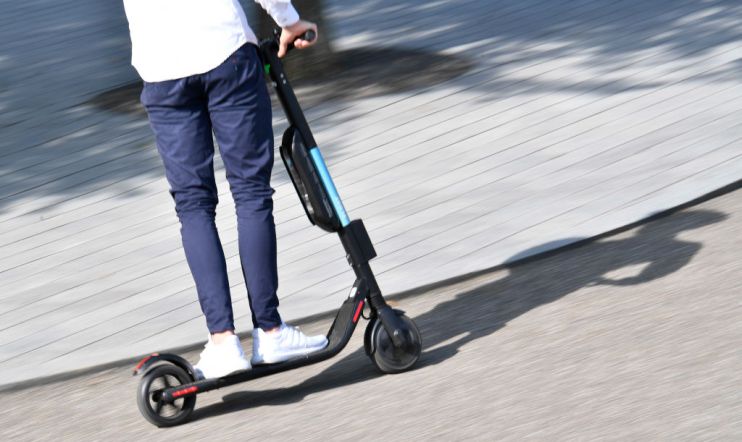Free the e-scooters and unleash a British transport revolution

The e-scooter revolution is happening at breathtaking speeds — but because of archaic laws, the United Kingdom is missing out.
E-scooters can be legally purchased in Britain, and have become an increasingly common sight on the streets. They are, however, unlawful for use on public roads, cycle paths and pavements under the Highways Act 1835 and the Road Traffic Act 1988. This is despite surveys and usage indicating that they are exceedingly popular in countries where they are legal.
The case for reform is overwhelming. E-scooters are now available in 350 cities worldwide and have safely provided hundreds of millions of rides.
Bird, the pioneers of dockless e-scooter rental, are the fastest company in history to reach unicorn status and be valued at over $1bn. A study by McKinsey estimated that the micromobility industry in the US, Europe and China could be worth as much as $500bn by 2030.
And it’s not just about money. Road traffic, which is projected to grow by as much as half by 2050, is a major challenge to urban areas. Cars produce substantial CO2 emissions, contributing to climate change, and NOx pollutants that choke our lungs and shorten our lives.
Congestion costs the economy a hefty £7.9bn a year. Over two thirds of city car trips in the UK are under three miles — short enough to be replaced with e-scooters. In other cities, one third of e-scooter rides replace personal car journeys and ride sharing — meaning millions fewer car trips.
One argument often made against e-scooters is that they are not safe, either for riders or for other road users. But while the evidence base is still developing, the existing figures do not appear to indicate a disproportionate risk compared to other transport options and activities.
In 2018, there were 1,545 accidents involving e-scooters in the US. This compares to 124,933 skateboard injuries, 424,346 bicycle injuries, and 218,527 playground equipment injuries. Following the “safety in numbers” phenomenon, we can expect e-scooters to become even safer over time, as they become more familiar to other road users. While there is danger posed by any road transport method, we must avoid allowing a relatively small number of highly publicised incidents create a moral panic about this revolutionary new technology.
E-scooters also offer broader benefits in terms of spreading opportunity. Fixed bicycle rental schemes — like the Boris bikes — tend to be centred in higher-income neighbourhoods already served relatively well by public transport. E-scooters, in contrast, provide “last mile transport”, offering communities underserved by public transport easier connection to employment, families and friends.
And if nothing else, e-scooters are fun to use. As a report from the Society of Automotive Engineers explains, they provide the “freedom and control of driving, the pleasantness of walking, the excitement of cycling, and the convenience of skateboarding”.
So when will we get to enjoy the benefits without fearing legal repercussions? Last month, transport minister George Freeman announced that his department will be releasing a consultation on e-scooters “in due course”.
This could not come soon enough. The government should immediately legalise e-scooters and develop a liberal regulatory regime, with trials for dockless rental schemes, leaving cities and regions responsible for deciding locally appropriate regulation.
Over the last two centuries, new technologies from the horse and buggy to trains, cars, and planes have liberated us from the tyranny of distance. E-scooters are the latest generation of that technology. Let’s set them free on our roads.
Main image credit: Getty